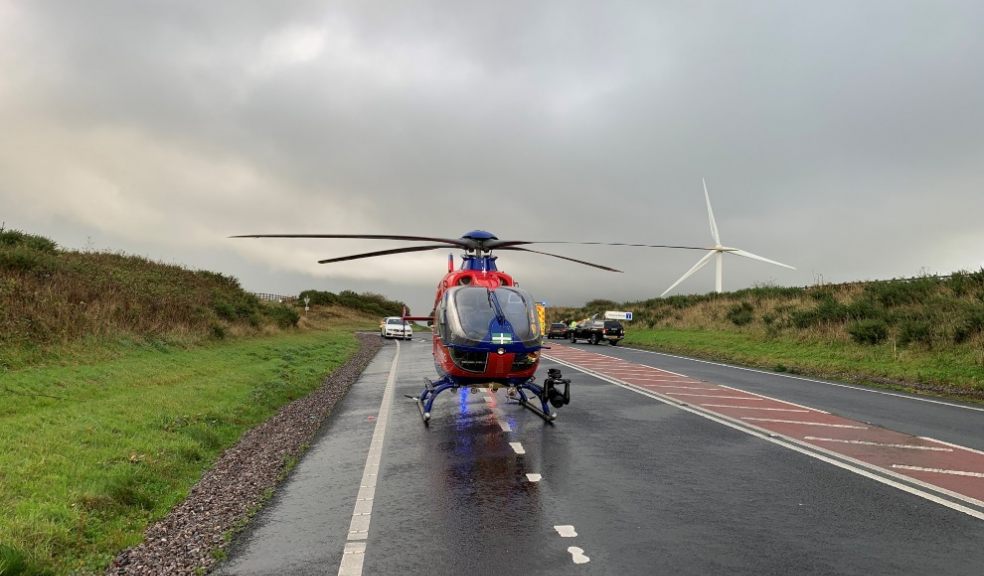
Devon Air Ambulance: What it means to be needed
Devon Air Ambulance delivers life-saving treatment at the scene of an incident to hundreds of patients every year, but when the helicopter departs without a patient, does it really mean they ‘aren’t needed’?
The enhanced and critical care that Devon Air Ambulance’s (DAA) team of doctors and paramedics bring to a patient in their time of need continues to expand each year, helping to create the very best chance of a successful outcome when minutes mean the difference between life and death.
In rural Devon, getting patients to the right hospital is only part of the package of care patients need to survive. Stabilising a patient is as important as a rapid transport to hospital as Operations Director, Nigel Hare, describes:
“More and more of the care that Devon Air Ambulance is able to provide patients, in what we refer to as the ‘pre-hospital environment’, is otherwise only available to them once they have arrived in a hospital. The treatment we can provide to a patient with time-critical needs often means we have to consider carefully what the best mode of transport to the hospital will be, so we can continue to deliver that care safely and help keep the patient alive.”
He continues:
‘For long distances to specialist treatment centres, the speed of the helicopter may appear the obvious choice of transport. However, sometimes, despite the sophisticated care we can deliver, and flying at around 150-160 miles per hour, the patient’s condition may be such that they might not survive the journey to hospital.
In such circumstances the DAA clinical team will consider whether to convey the patient to the closest hospital instead, perhaps for immediate life-saving surgical intervention, prior to them being transferred to the specialist treatment centre. Devon’s new H145 helicopter, made possible by the charity’s dedicated supporters, provides greater access to the patient in flight, enabling teams to access multiple areas of the patient at the same time.
Bringing urban as well as rural support
As DAA Critical Care teams increasingly brings greater levels of the care otherwise only available in hospitals, its crews are called out to treat greater numbers of patients in towns and cities. Though a patient may be only a short distance from the local hospital, when minutes matter, the DAA Critical Care team’s expert care might be what keeps the patient alive long enough to reach it.
Care in the time of COVID
Recently, during the COVID-19 pandemic, crews have had to make new decisions to make on how best to transport patients.
The nature of the Level 3 Personal Protective Equipment (PPE) and the impact of taking up to an hour after the incident to decontaminate the helicopter before it can respond again, can mean crews are not available to respond to the next patient who might need us and are more frequently opting to travel with the patient in a land ambulance to the hospital.
Hour of need
Occasionally, poor weather such as fog means transferring the patient by road is the safest and only option. To the casual onlooker, the helicopter arrives but does not convey the patient to the hospital.
This is often relayed as ‘Devon Air Ambulance was not needed’, but with the clinical team delivering the very highest level of care, not just at the scene, but also en-route to hospital in a land ambulance, the reality could not be further from the truth, as Nigel says:
“The speed of our helicopters will always play an essential part in enabling us to reach patients fast to transport them to specialist hospitals quickly. However, as the level of care we provide continues to develop, and the interventions and equipment we use become more sophisticated, we will continue to convey some patients to hospital by road when it is in the patient's best interest for us to do so.
Far from ‘Devon Air Ambulance not being needed’, Devon Air Ambulance expects the number of patients they are called to help to continue to increase. If you would like to help support the charity’s efforts you can donate by visiting www.daat.org/donate/donate-now














